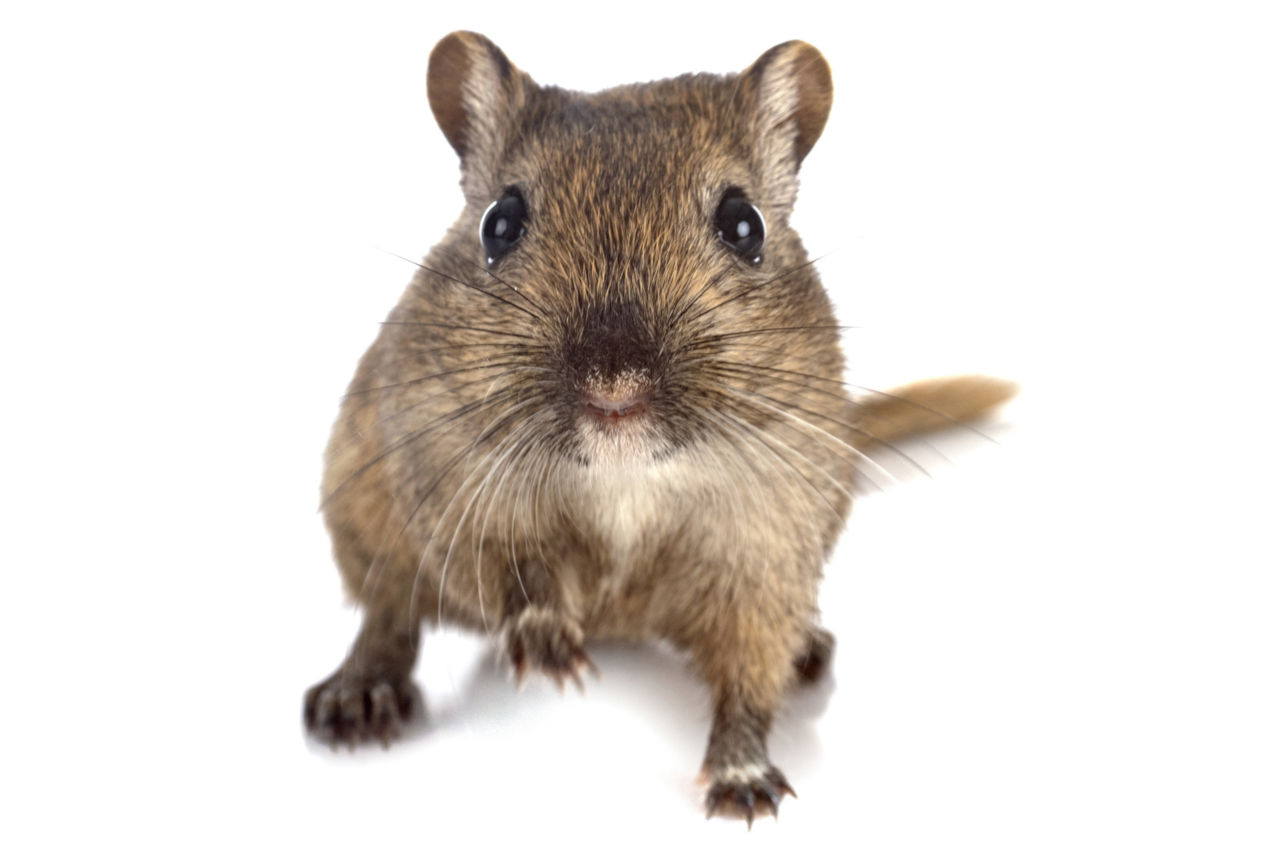Gerbils need fresh and healthy food to survive in the wild. When you feed your gerbils a food mix, the food is usually dry and processed. Perhaps you think that your gerbils also need fresh berries and fruits such as blueberries?
Although blueberries are not poisonous, they are not really healthy for gerbils either. If your gerbils eat too many blueberries, it can cause diarrhea. They are also not nutritious for the animals as they do not contain the vitamins and minerals that gerbils need.
Instead, your gerbils’ diet should consist almost exclusively of a food mix.
Vegetables are also much better for a gerbil than fruit. Vegetables contain more of the vitamins and minerals they need than blueberries and are less sugary.
Can Gerbils Eat Blueberries?
Gerbils can eat blueberries without any side effects. They like the taste and texture of the berries and are happy to eat them when offered.
However, the fact that a gerbil can eat something does not mean it should. Eating blueberries is not as bad as swallowing plastic, but they are still not the healthiest snack.
Fruit contains a lot of water. By weight, it’s mostly water, with no nutritious components like carbohydrates, protein, or fat.
This is not a bad thing in itself, but it does mean that the nutritional value of fruit for gerbils is limited.
In addition, not all fruits have the same vitamin and mineral content.
Many fruits indeed contain a lot of vitamin C. But gerbils can get vitamin C also from other foods such as leafy vegetables.
And other foods contain many things that fruit does not, such as essential minerals.
How Many Blueberries Can Gerbils Eat?
You can feed your gerbils almost any kind of fruit. The only question is how much?
You should not give each gerbil more than half a blueberry per week. If you give them more, it may be too much.
This may seem like a tiny amount, but remember that your gerbils don’t have to eat blueberries. Even though they may seem small, large blueberries can reach the size of your gerbils’ heads.
If your gerbils overeat fruit, it can have side effects. So don’t give your gerbils more than this amount.
However, it is better for your animals to feed them vegetables instead of fruit.
How Often Should Gerbils Be Fed Blueberries?
Gerbils should be offered blueberries only as an infrequent treat. They do not contain enough nutrients to replace the other foods gerbils should eat.
It can also be problematic to feed your animals things they are not used to.
This applies to anything not part of the regular gerbil food mixes. These special food mixes are formulated to contain everything a gerbil needs.
A food mix for gerbils, therefore, contains:
- Lots of carbohydrates
- Small amounts of protein and fat
- Minerals like magnesium and calcium that are essential for gerbil health
- Vitamins
A high-quality mixture covers all the needs of your gerbils. So, if you give your gerbils a good food mix, you don’t need to feed them blueberries.
If you want to do it anyway, that’s fine. It won’t have any adverse effects unless you do it too often.
So limit the number of blueberries your gerbils get, as described in the section above.
Health Benefits of Blueberries for Gerbils
According to nutritional information, blueberries are like most other fruits. They consist mainly of water.
Apart from the liquid, 100 g of blueberries contain 14 g of carbohydrates, of which 10 g are sugars. This is an average amount for fruit and vegetables.
This is fine for gerbils. Most foods that gerbils eat contain more carbohydrates than protein and fat.
It is not a problem for them to eat a lot of carbohydrates and neglect other things.
However, the vitamin and mineral content of blueberries is not as high. Compared to better snacks such as nuts and seeds, blueberries contain almost no vitamins.
Compare them with sunflower seeds, for example:
- Vitamin E: Sunflower seeds contain 35 mg of vitamin E per 100 g. Blueberries only contain 0.8 mg.
- Vitamin B6: Sunflower seeds contain 1,345 mg of vitamin B6, which is a lot. Blueberries, on the other hand, only contain 0.1 mg.
- Vitamin B1: Sunflower seeds contain 1.48 mg of vitamin B1. Blueberries only contain 0.1 mg.
The same applies to minerals such as copper, iron, magnesium, manganese, phosphorus, selenium, and zinc.
Each of these minerals can fulfill vital functions in the body. Sunflower seeds contain a lot of them, while blueberries contain relatively little.
However, blueberries contain a lot of water, which can benefit gerbils. In the wild, gerbils obtain almost all of their water intake from the food they eat.
As pets, of course, they always have access to water. But with food containing water, they can meet their needs naturally.
What Nutrients Are in Blueberries?
Blueberries contain small amounts of fiber. Fiber promotes intestinal health by stimulating a gerbil’s stomach and intestines to work harder.
This keeps the gut healthy for longer. However, this is offset by the adverse effects of highly acidic foods such as fruit on the gerbil’s gut.
Blueberries also contain some vitamin C, although not as much as other foods.
Vitamin C is good for humans in many ways but is not needed by gerbils. A gerbil that does not consume much vitamin C will not feel any adverse effects.
As you can see from these points, the disadvantages of blueberries outweigh their advantages. Therefore, you should not feed blueberries to gerbils or other rodents.
Are Blueberries Poisonous to Gerbils?
Blueberries are not poisonous to gerbils. You can feed your gerbils as many blueberries as you like, and they will not die from poisoning. However, they can still have harmful effects.
Many fruits and berries are toxic. That’s why you are not supposed to eat berries you find while out walking – unless you can identify them as non-toxic with 100% certainty.
Exactly which berries are poisonous, however, depends on which species is eating them. Grapes, for example, can be toxic to many animals.
Gerbils should not eat grapes as their seeds can be poisonous. The same effects occur in other rodents.
Blueberries, on the other hand, have no toxic effects on gerbils.
The other problem is that gerbils’ digestive systems are unused to many fruits.
Have you ever eaten a new, unfamiliar food that caused you problems with your gut? This is something that affects not only us but animals, too.
The problem is that the gut gets used to processing certain things. If you give it something new and unknown to digest, your body can respond as if it’s bad for you.
With time, you can get used to it, but initially, it causes pain and bloating.
The same goes for your gerbils. Your pets can get intestinal problems if they overeat a new food like blueberries.
This does not mean the food is poisonous, but it is not a pleasant experience for your pets.
Side Effects of Blueberries for Gerbils
The blueberry itself does not cause any adverse side effects. When fed in small quantities, your gerbils will enjoy their food, and it will not cause any problems.
It is only when they eat larger quantities that diarrhea can occur.
There are two explanations for this. First, blueberries are acidic, like most fruits. The average pH value of blueberry juice is 3.6, which is very acidic.
In comparison, human stomach acid has a pH value between 2 and 3.5.
An animal’s digestive system also relies on acid to break down food. However, if it eats too many acidic foods, this can lead to digestive problems.
The second reason is that blueberries contain so much water that your gerbils’ stools become less solid. This reaction can occur in all animals if they overeat fruit.
Can Gerbils Get Diarrhea After Eating Fruit?
If your gerbils eat too many blueberries, this can lead to diarrhea. This also applies to most other fruits.
Fruits like apples, peaches, strawberries, and bananas are acidic. Some people sometimes give gerbils these fruits as well. But these fruits all cause the same digestive problems.
Diarrhea will not usually kill a gerbil. However, it can have some severe effects:
- Diarrhea contains bacteria that can contaminate your gerbils’ roosting area and toys. This can lead to infections.
- Diarrhea prevents a gerbil from absorbing nutrients. The gerbil gets rid of many valuable nutrients that it has just digested.
If a gerbil had constant diarrhea, it would slowly starve to death. You would notice the problem before it got that far, but diarrhea is best avoided altogether anyway.
You should, therefore, also avoid fruit unless you really only give it in small quantities.
So it’s not that blueberries are bad. The point is that fruit is generally not the ideal food for gerbils.
How Does Acid Affect Gerbils’ Mouths?
The acid in blueberries has another effect. It can damage the sensitive mucous membrane in your gerbils’ mouths.
This can cause your animals pain, even if it probably has no other effects.
Did you ever overeat acidic fruit such as blueberries or pineapple? You may have noticed that your oral mucosa feels painful and sensitive.
In some places, it may even peel off. This is the effect of the acid in the fruit.
The same thing can happen to your gerbils if they overeat acidic fruit. Like you, this can be painful.
In addition, the acid can cause or aggravate even more painful ulcers. The ulcers can become infected if they are severe and left untreated.
In the worst case, this could lead to sepsis and death. If you feed your gerbils only fruit, this would be a problem.
And according to studies, the acid also causes stomach ulcers. But as an occasional snack, blueberries will not cause these problems.
Besides other, less acidic foods, your gerbils won’t eat enough fruit to cause significant damage.
Should Gerbils Eat Fruit?
Gerbils can eat fruit in moderation. Once a week is a good compromise, but two or three times a week shouldn’t hurt either.
When you start feeding fruit, you also need to consider the overall diet of your gerbils. If a gerbil eats blueberries, it might eat something more nutritious instead.
And compared to other foods, there’s little reason to feed gerbils fruit.
Blueberries are packed with sugar but contain hardly any other essential gerbil nutrients.
They have a high acid content and are also not crunchy, which does not help gerbils’ teeth. This is the case with most fruits.
If you want to feed your gerbil fresh food, you should consider vegetables.
Vegetables are considered healthy, and in many ways, they are. They contain similar beneficial vitamins and minerals as fruit.
However, vegetables are better than fruit for the following reasons:
- It contains primarily water, like fruit, but does not contain as much sugar.
- They are more similar to the gerbils’ natural diet.
- Vegetables are often crunchier than fruit, which, like carrots, is good for gerbils’ teeth.
So if you want to feed your gerbils fruit such as blueberries, you should consider vegetables instead.
But even then, your gerbils’ diet should consist almost exclusively of a special gerbil food mix.


